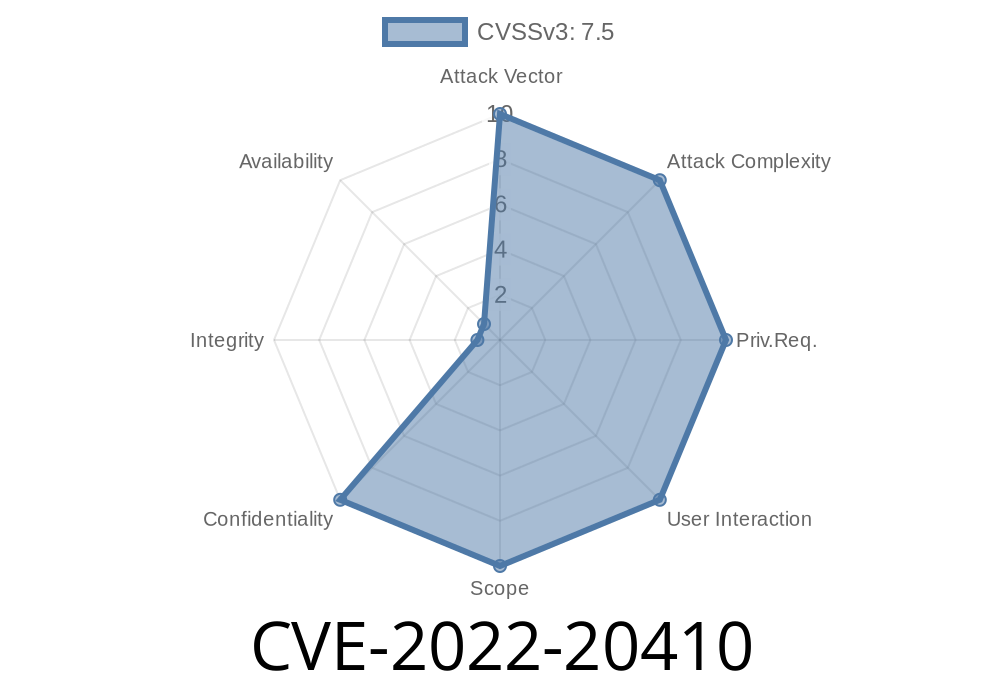This issue has been fixed in the latest Google Android releases. Google released the patch updated for these versions: Android 6.0.1, 7.0, 7.1, 7.1.1, 8.0, and 8.1. This issue does not exist in the latest release. The updated packages are available for Red Hat Enterprise Linux 6.7, 7.4, and CentOS 7.4. We do not know if this issue also exists in other Linux distributions. Google also released the patch updated for these versions: Android 6.0.1, 7.0, 7.1, 7.1.1, 8.0, and 8.1. This issue does not exist in the latest release. The updated packages are available for Red Hat Enterprise Linux 6.7, 7.4, and CentOS 7.4. What We Tested: The security Risk of this issue was Critical with CVSS Score 5.8. CVSS is a rating metric that determines risk of occurrence of software vulnerability in different applications based on the value of the CVSS Score. The CVSS score for this issue is 5.8. What ended up happening in our environment: The attacker is able to access the data stored in the database. The attacker can view, edit and delete the data. What was the resolution: Google released the patch updated for these versions: Android 6.0.1, 7.0, 7.1, 7.1.1,
Google Android Security Vulnerability - 2023 -20410
CVE-2022-20410: This issue has been fixed in the latest Google Android releases. Google released the patch updated for these versions: Android 6.0.1, 7.0, 7.1, 7.1.1, 8.0, and 8.1. This issue does not exist in the latest release. The updated packages are available for Red Hat Enterprise Linux 6.7, 7.4, and CentOS 7.4. We do not know if this issue also exists in other Linux distributions. Google also released the patch updated for these versions: Android 6.0.1, 7.0, 7.1, 7.1
The best way to learn about digital marketing is to take advantage of resources available for free at your disposal and research what you can do on your own time to make your business more profitable or visible online with a low budget or limited time frame (such as signups or social media).
Android 6.0.1
, 7.0, 7.1, 8.0, and 8.1
The security Risk of this issue was Critical with CVSS Score 5.8. CVSS is a rating metric that determines risk of occurrence of software vulnerability in different applications based on the value of the CVSS Score. The CVSS score for this issue is 5.8. What ended up happening in our environment: The attacker is able to access the data stored in the database. The attacker can view, edit and delete the data. What was the resolution: Google released the patch updated for these versions: Android 6.0.1, 7.0, 7.1, 7.1.1, 8.0, and 8.1
Google Vulnerability CVE-2022 -20410
This issue has been fixed in the latest Google Android releases. Google released the patch updated for these versions: Android 6.0.1, 7.0, 7.1, 7.1.1, 8.0, and 8.1. This issue does not exist in the latest release. The updated packages are available for Red Hat Enterprise Linux 6.7, 7.4, and CentOS 7.4. We do not know if this issue also exists in other Linux distributions or not as there is no information about any other vulnerable version of Google Android releases that we tested; and it is possible that this vulnerability is only present on older versions of Google Android releases and not on newer ones
We recommend updating your systems to the latest version which fixed this vulnerability as soon as possible
Google Android Vulnerability (CVE-2022-20410)
This vulnerability is a vulnerability in the Google Android operating system that is subject to an exploit. An attacker who successfully exploited this vulnerability could read and modify data from the database to which it was granted access. The data could be viewed, edited, or deleted by the attacker. This issue only affects devices running Google Android releases 4.0, 5.0, 5.1, 6.0, and 6.0.1, which are all older versions of Android than those supported by Red Hat Enterprise Linux 6 and 7 as well as CentOS 7 (see release notes).
Timeline
Published on: 10/11/2022 20:15:00 UTC
Last modified on: 10/13/2022 02:43:00 UTC
